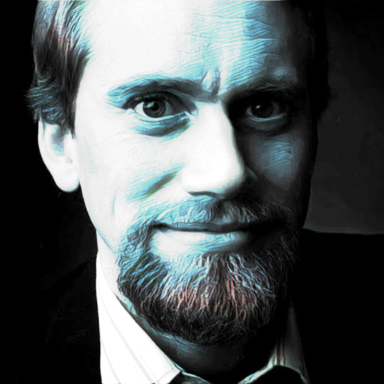Picture This
By Yash Egami on Jun 20, 2013

Most people know NBC News journalist Ann Curry as the person in front of the camera, but many don't realize that she has also been working hard behind a different type of lens. An avid photographer, Curry began documenting her travels to far-flung places like Africa and Asia many years ago and spoke about some of her work recently during a Creative Week presentation with Pulitzer Prize-winning photojournalist David Turnley. Introspective and soft-spoken, Curry's talents are evident in striking, sometimes heart-breaking images from war-torn regions and developing nations. The following are excerpts of our conversation with Ann after she spoke about how her hobby has taken on a life of its own, and what she hopes to achieve through her images.
When did you first catch the photography bug?
For me photography has been a love since I was very young. The university I went to I studied journalism and photography. But I was sort of pushed into other directions by my professor and my life, and I stopped doing photography. But what really inspires me about it is that it gives me another chance to give a face to the voices. Most of them are unseen and deserve to be seen. It's a way for me to show them to the rest of the world so that they are not ignored, so they are not disregarded, so that they are seen as being a part of the human family. So I use photography just like I use interviews as storytelling.
A lot of the pictures that you take are very emotional. Is that hard to do sometimes?
These stories are very hard to do—you go and come back and it takes a couple days to normalize. I actually fall into a mini-depression for a couple of days because I have to assess that difference when you go someplace where drinking the water can make you sick, but then you come home and your kids are saying, "Hey, let's go to the zoo." It's a big spin and it takes me a couple days to adjust, but it's worth it because it seems that people in the world are increasingly compassionate to each other. All of us who do this kind of work are influencing in our small ways the bigger river of knowledge, and I hope it's changing our world.
What do you hope people will take away from seeing your work?
Empathy. I hope that when they see my pictures they will feel empathy for someone else, to see that human being as valuable as themselves. I think that we live in this kind of dream world thinking that we're more important, or less important. What we don't realize is that we're all equally important. Our world seems to be focused on who has power and who has money and all of this, and we're starting to think that some people are more important than others. But in fact we're all valuable and important, and when we see those who are least regarded, it's a reminder to ourselves not only of their world, but our own.
What's the one place that made the biggest impression on you?
I think what was life changing was the first time I went to Africa, I realized that I was home. It's a strange thing to say that the first time I went to Africa I was home. And I can't really explain it except to say that that was life changing because I realized there was some connection that was deeper than I could understand but I could feel. And every time I've gone to Africa, and I've been all over to most of the countries in Africa, the feeling has never changed. So what does that mean? It means that you can be someplace that's so far from home and be home. That means that we are not so different after all, that there is something similar no matter where you go, and there's a connection wherever you go, and I think discovering that was transforming.
Related



